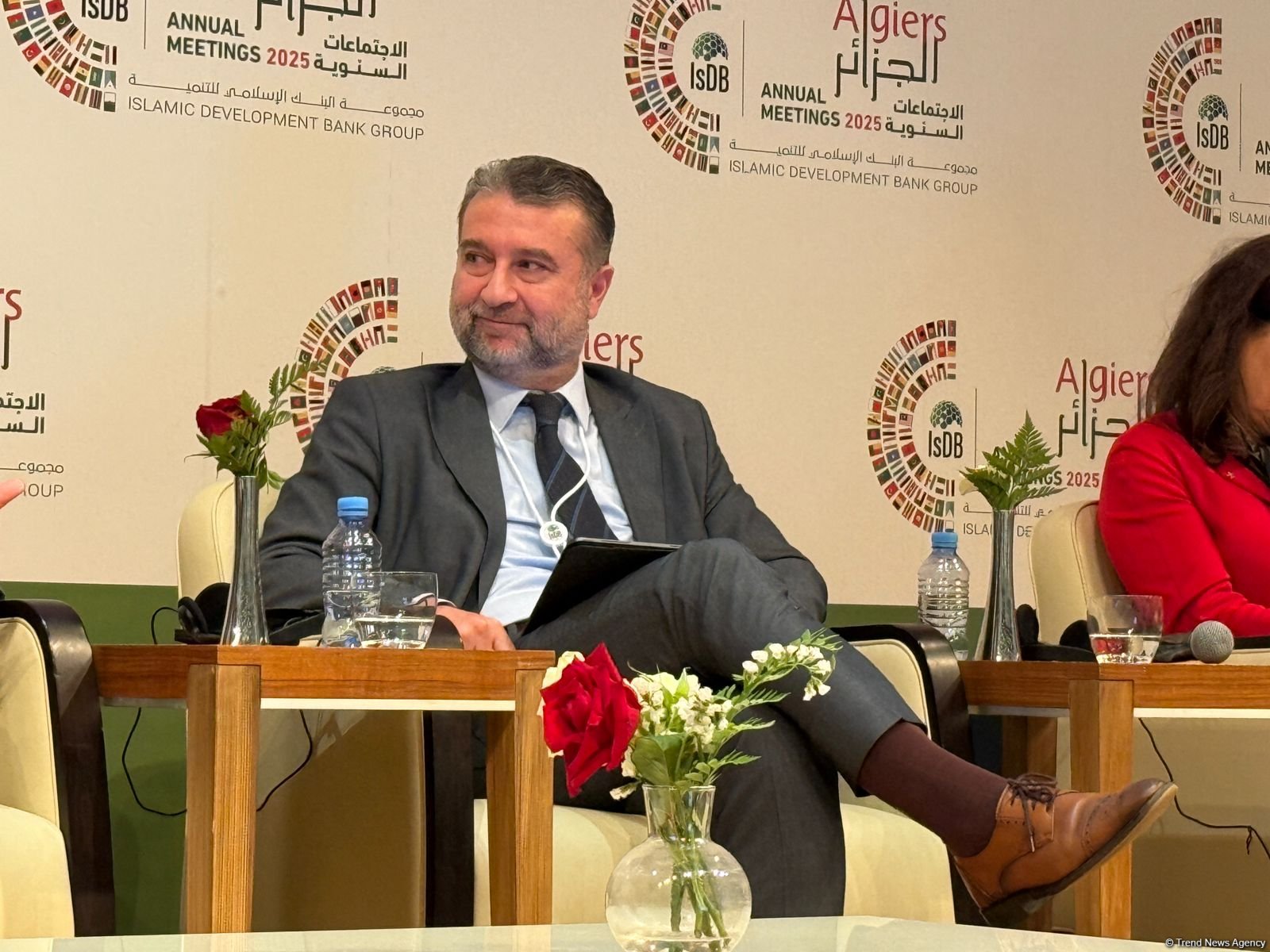ALGIERS, Algeria, May 22. We are trying to integrate decentralized renewable energy solutions across the value chains of entire value chains of agriculture and health, said Gurbuz Gonul, Director of Country Engagement and Partnerships at the International Renewable Energy Agency (IRENA), Trend’s special correspondent reports.
In his speech at the "Transforming Lives and Livelihoods Forum: Mobilize for Impact", as part of the Annual Meetings of the IsDB in Algeria, Gonul emphasized the importance of integrating decentralized renewable energy solutions throughout value chains in critical sectors like agriculture and healthcare.
Gonul highlighted the vulnerability of these two sectors, pointing to the pandemic and geopolitical crises as examples of the fragility of food and medical security.
"Agriculture and health, why do we pick them? I think it is very clear how fragile these two sectors are. I think we have gone through a pandemic. We have also suffered through geopolitical crises, and they have clearly shown us food security and health security are very fragile," he said.
Gonul emphasized that in healthcare, the main focus is on electrifying rural healthcare facilities.
"Because in the health sector, especially, we are focused on the rural health care clinics and how we can electrify them, but through an approach that is more ecosystem approach, looking at the efficiencies, how we can bring efficiencies into building design, equipment and appliances used, and IT needs that come up with a solution. But it is more difficult to secure the types of funding and financing that it requires because it's not a cash-generating activity, and it's a very social sector, and it requires more public funding," he explained.
In the agri-food sector, the IRENA representative noted that the situation is even more complex.
"Against the agri-food sector, it is much more difficult to develop programs and projects. It is more complicated. You have to deal with thousands of farmers through whatever structures you have, even though you do it through cooperatives or some bundling structures. But at the end of the day, if you work properly and develop capacities on the ground, local capacities on the ground, working with the banks, the local banking sector, but also working with supply chains and also service chains, and develop that entrepreneurship around it to make it long-term sustainable, then it can be successfully implemented. And what are the mechanisms or financing mechanisms? What we are trying to do is develop those technical solutions where renewable energy is relevant in different value chains where productivity is low.
And when we talk about the financial mechanisms, they have to be affordable, as I mentioned in the previous slides. Difficulty in many instances is working with those countries that are under a serious debt burden, and it is very difficult to deploy solutions because there is little room for maneuvering, also to address those immense challenges they are suffering, especially in the context of achieving those different sustainable development priorities," he concluded.
Stay up-to-date with more news on Trend News Agency's WhatsApp channel







